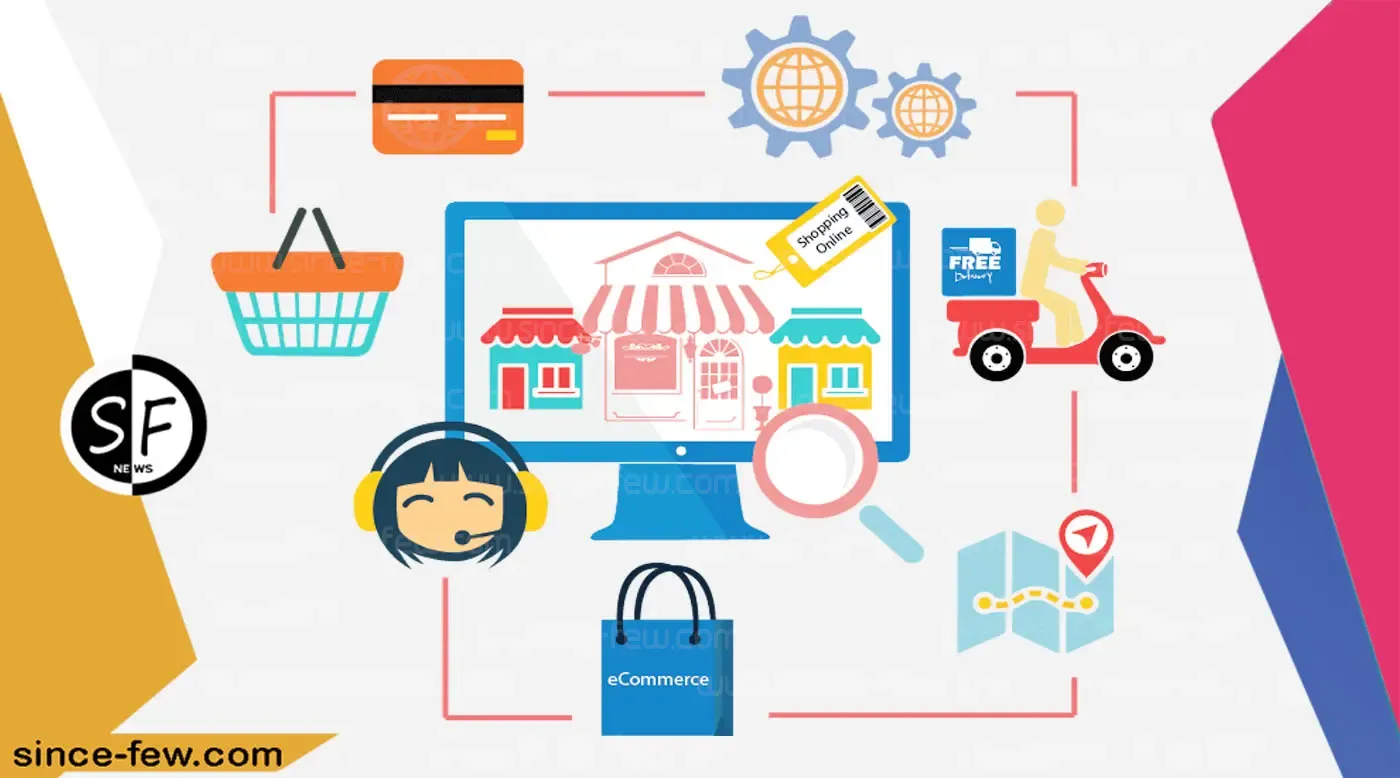 |
| What Advantages Has e-Commerce Provided us With? |
One of the Advantages That e-Commerce Has Brought us
There are numerous advantages that e-commerce has offered us, with the following being the most important:
- The purchasing procedure is quick.
- Make a list of things that are less expensive.
- At a low cost, advertising and marketing
- Client-friendly flexibility
- Increasing the amount of people who know about the product
- There are numerous payment options available.
The purchasing procedure is quick: we can spend less time browsing for what we want, we can simply browse several goods at once and buy what we like, and we can locate items that are not available in physical stores near us or in our neighbourhood when we are connected to the internet.
Create Product List: The product list is what we see when we search for an item, and it is a feature of e-commerce dedicated to the seller, as we may personalise our product list after we create it.
Lower costs: One of the biggest benefits of business e-commerce that attracts sellers to sell online is the cost savings, as many sellers can spend a lot of money to maintain their store, and may have to pay additional upfront costs such as repairs, store design, inventory, and so on, and in many cases, even after these costs, sellers do not make enough money to justify their investment. When compared to a physical store, an e-commerce store allows the seller to reduce the amount spent on store maintenance, which is also less expensive and requires less investment. This is also a good opportunity for individual and small sellers who want to earn an income but lack the capital required for a startup.
Low-cost advertising and marketing: When sellers do not need to spend a lot of money to promote their goods. E-commerce marketplaces are visual platforms where merchants can really showcase their products, and there are many quick and economical ways to market online in the e-commerce industry.
Flexibility with customers: One of the major benefits of e-commerce in business is that sellers can provide flexibility to customers; one of the highlights is that the product and services are available 24 hours a day, seven days a week, allowing the seller to display his merchandise anywhere and at any time. They can sell in an online marketplace with confidence, knowing that there are plenty of buyers, by taking use of this consumer flexibility to maximise their revenue.
Reaching a larger number of customers: A seller with a physical store may only be able to reach a small number of customers, even if they can deliver to their homes, but distance may be an issue. However, many e-commerce marketplaces have their own system, which allows them to deliver their products to customers in multiple ways.
E-commerce marketplaces accept a variety of payment methods, including UPI, Cash on Delivery, Card on Delivery, Net Banking, EMIs on Credit or Debit Cards, and the Pay Later Credit service.
What is the definition of e-commerce?
E-commerce is defined as the electronic buying and selling of goods over the internet, which is popular due to the many benefits of e-business, internet marketing, electronic money transfer, and mobile commerce, and it is divided into two parts: online retail shopping that goes directly to consumers from businesses, and online wholesale shopping that goes to businesses. Sellers are part of online marketplaces where many third-party sales are performed, and the second component is that sellers are part of mobile applications, websites, even voice assistants, chatbots, chat bots, and so on.
Features of e-commerce
The following are some of the most important characteristics of e-commerce:
- E-commerce is broad, in the sense that it is always available everywhere, because it does not confine the free market to a physical space and allows consumers to shop from their computers, lowering product prices and making products available to them at any time, regardless of their location.
- As a result, the potential market size of e-commerce merchants is roughly equal to the size of the online population. E-commerce allows businesses to easily reach across geographical borders around the world more conveniently and effectively than traditional commerce, and businesses gain greater profits and business results by expanding their business using e-commerce globally.
E-Benefits commerce's
- Companies may reach a bigger number of customers by using e-commerce.
- In marketing, companies have reduced operating costs.
- Consumers prefer buying at home since it is more convenient.
- Consumers may quickly compare different brands when shopping.
- The consumer has a huge number of things to choose from and may do so quickly.
E-disadvantages commerce's
Despite the benefits and conveniences that e-commerce provides to both sellers and buyers, it does have some drawbacks, the most notable of which are:
- Lack of protection: In e-commerce, the consumer must have confidence and faith in the payment providers; nevertheless, fraud, hacking, or counterfeiting can undermine the consumer's trust.
- Low bandwidth: In many countries, the network may cause issues owing to insufficient bandwidth.
- E-commerce software or websites are difficult to integrate with some existing programmes and databases, because providers require dedicated web servers in addition to network servers to address the integration issue.
- Many potential customers who reside in distant areas do not have Internet access because Internet access is not generally available. As a result, most of the effort is not actually reaching the consumer.


0 Comments